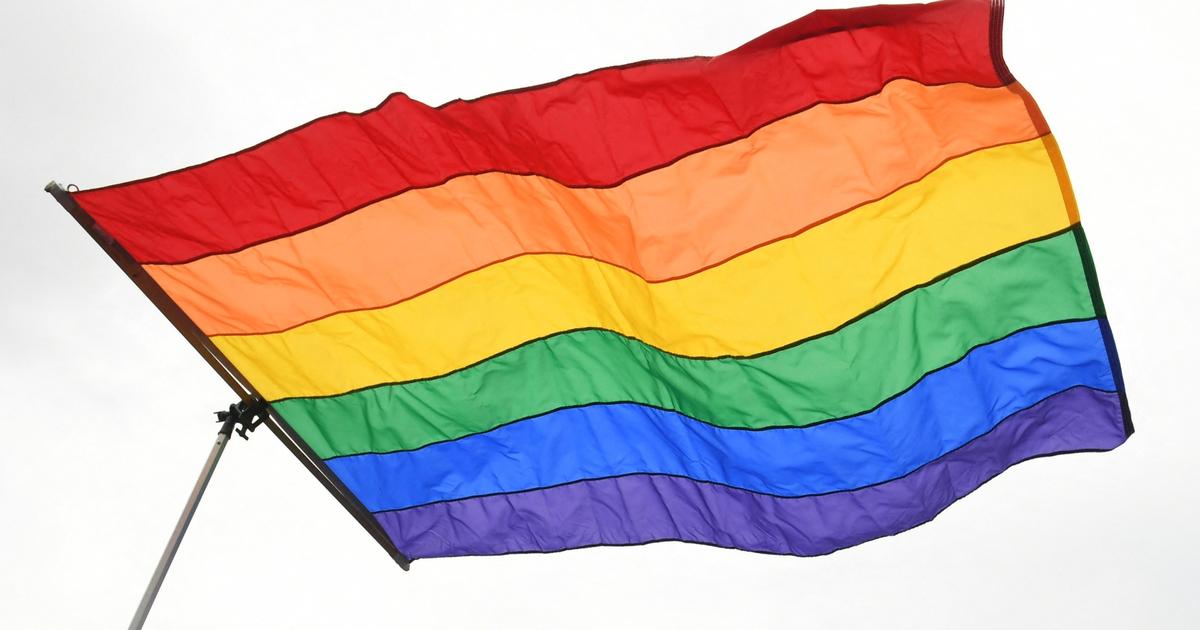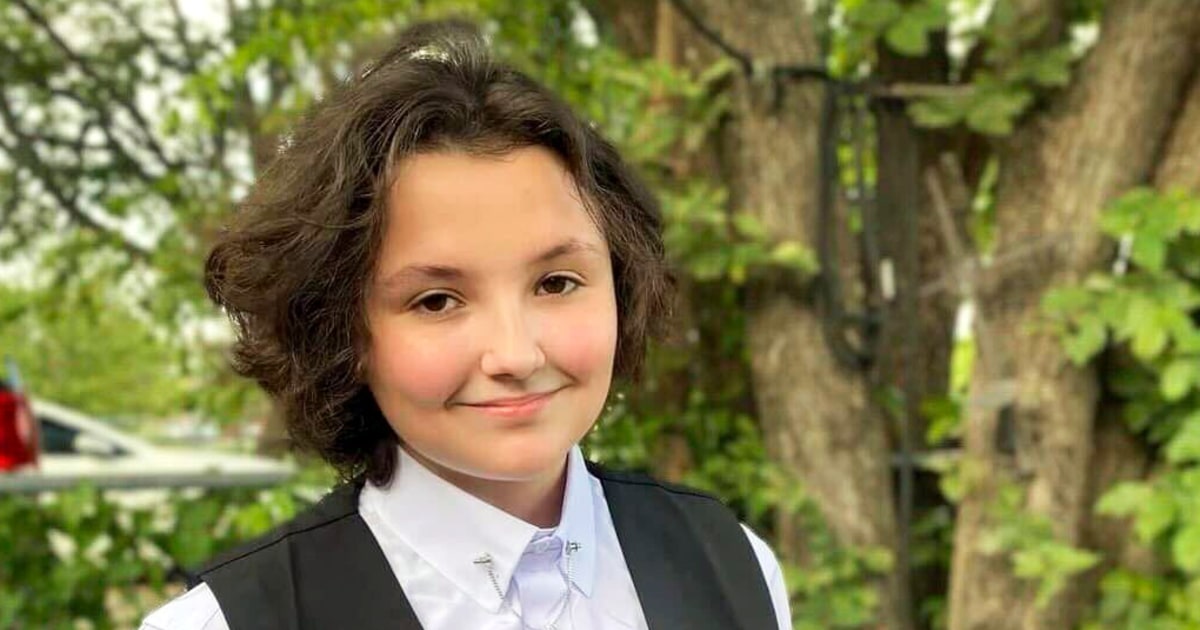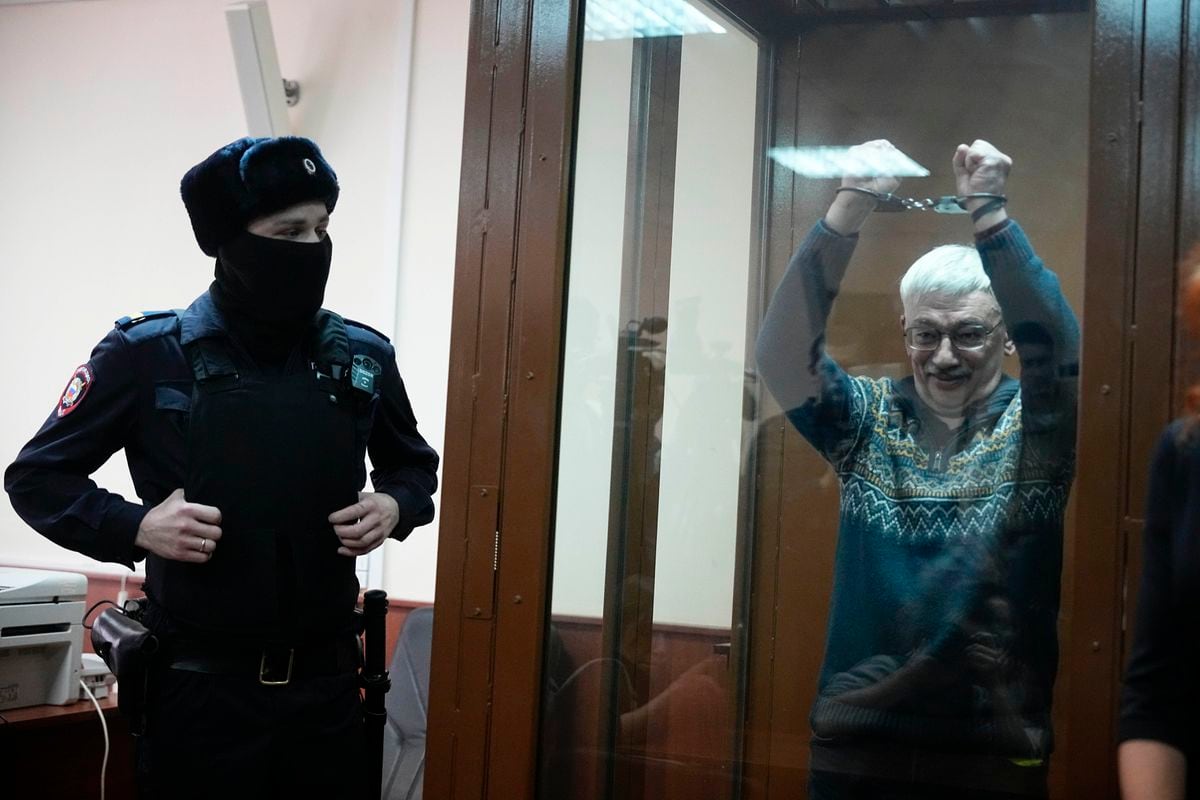The activist Kelley Robinson debuts this Monday as president of the Human Rights Campaign (HRC), the most powerful civil rights organization for LGTBI groups in the United States, with three million members and supporters.
Last week she was able to verify that the landing will not be easy: the mass shooting that took the lives of five people in a gay club in Colorado Springs forced her to roll up her sleeves prematurely.
“We know that anti-LGBTI hate is on the rise and that gun violence, fueled by political extremism, affects our community in devastating ways,” she stated.
“Many lives have been taken from us, from Pulse [an Orlando nightclub where a shooter killed 49 people in the deadliest homophobic attack in the country’s history in 2016] to Colorado Springs.
Robinson, 36, gave EL PAÍS an interview in Washington before the tragedy, the latest to fatten a macabre account: HRC estimates that in the last decade there have been "at least 300 violent deaths of transgender and gender non-transgender people." compliant, including the 32 of 2022.
Until now, she worked as executive director of the Planned Parenthood Action Fund, the policy and advocacy arm of America's leading abortion rights organization.
He takes over at HRC more than a year after the firing of his predecessor, Alphonso David, after it emerged that he had advised former New York Democratic Governor Andrew Cuomo on the best way to deal with harassment allegations that ended with his resignation.
Robinson will be the first openly
queer
African-American woman to chair an organization that has been criticized for focusing too much of her efforts on white gay men.
Her appointment reflects the urgency of diversity of power in the United States.
A person leaves a message on a cross at the memorial for the victims of the attack on Club Q, in Colorado Springs, on November 19. Jack Dempsey (AP)
“Representation is important,” Robinson says.
“One of my biggest priorities will be to bring more non-white people into the movement and create leadership opportunities for them.
I am happy to chain my previous work with this one.
They are interconnected struggles, both have to do with bodily autonomy;
either because you decide to access the abortion or because you want to love whoever you want.
That interconnectedness also exists in the mind of Clarence Thomas, perhaps the most conservative and right-wing Supreme Court justice in eight decades.
The sentence that knocked down in June the federal right to abortion guaranteed by the
Roe v. Wade ruling
(1973) incorporated a concurring opinion by Thomas in which he proposed reviewing the precedents of three judgments based, like that, on the right to privacy: the one that in 2015 legalized homosexual marriage, the one that buried the prohibition of relationships between people of the same sex (2003) and the one that allowed married couples to use contraceptives in 1965. The first of those rulings was the one that allowed Robinson to marry his wife, Becky George, an activist in favor of gun control two years ago. .
“It was, in large part, due to the covid,” he acknowledges.
They thought that if one of them got sick and ended up in the hospital, the other wouldn't even be able to visit her.
They have a one year old son.
"With this Supreme Court, we cannot take any right that derives from the courts for granted," says Robinson, who believes that it is "urgent" to codify reproductive freedom by approving the draft Law for the Protection of Women's Health, which passed the congressional process before the summer and crashed against the Republican veto in the Senate.
“Even with
Roe
in force, abortion was in many ways only a nominal right.
People couldn't take leave from work to terminate their pregnancy.
There were mandatory waiting periods between the medical examination and the intervention, as well as regulations aimed at making the work of providers more difficult.
A law like the one that is in process would fix all that.”
When the interview took place, Robinson was optimistic that the polls would give the Democrats a sufficient majority that did not come;
they retained the Senate, but not the House of Representatives, so the processing of that rule will have to wait, if it ever comes.
At the top of Robinson's priorities for her new job is transgender rights.
“Last year was the deadliest for trans lives.
Black women bear the brunt of it: they go out every day to the streets, go to work, school or church without the assurance that they will make it home alive.
That is why it is important that they know that we will defend them, ”she clarifies.
That "dangerous" climate he links to the "political attacks on the community" that have come this year in the form of "laws in some Southern States."
Among them, the most famous is the one promoted by the governor of Florida, Ron DeSantis, who obtained a phenomenal victory in his re-election and sounds like a strong candidate for the White House.
Its detractors call it the Don't Say Gay Law, because it prohibits class discussion between teachers and students about sexual orientation and gender identity until the age of nine, allows it in later courses, but only when it is considered "appropriate for age or development” of students, imprecise provision, and encourages parents to report teachers who skip it.
"When its processing began, we observed a 400% increase in misinformation and harassment of LGTBI children on the Internet," recalls Robinson.
“They have declared a culture war against our children.
Politicians open the door so that they can be attacked”.
The activist grew up in a middle-class environment in Chicago.
She descends from the first black family of Muscatine (Iowa): her ancestors emigrated from Mississippi to the north, in Iowa, the first state in the country to repeal slavery laws (later it would be the third to legalize gay marriage).
As a child, she soon discovered what racism was.
“Parents told you things like never go into a store with your hands in your pockets, so they wouldn't think you had shoplifted,” she recalls.
Although her first "really negative experience" didn't come until her college days.
She was in Missouri.
“I observed a subtlety in the racism that I did not expect;
people who were friends with you in class, and who behaved very differently if they saw you in a bar at night.
There was one incident in particular: some white students placed cotton balls outside the Center for Black Culture.
Picking cotton is part of the experience of slavery in America.
When we complained, management said we were overreacting."
Those experiences pushed her to drop out of college.
She worked as a waitress and as a "mixed martial arts fighter."
She until she received the call from the campaign that brought Obama to the White House in 2008, during which she registered more than 30% of the young people who voted in Missouri for the former president.
And that was how “things clicked”.
In 2009, she began working at the Planned Parenthood affiliate that serves parts of the Midwest.
So much time later, he considers that "this is a terrifying time for the United States."
“Democracy is in danger, and the country for which my ancestors fought.
Those who advocate making America great again [Make America Great Again, the slogan of the movement championed by Donald Trump] actually want to go back to a time when people like me didn't have the same rights as white people.
It is our obligation to remind them that they are not the majority”.
His last service in the Planned Parenthood Action Fund consisted of precisely that, during the campaign of the recently held legislative elections.
The organization's work has focused on these legislatures to contribute to the triumph of candidates favorable to abortion protection, especially at the level of governors, and to win the referendums that in four states sought to shield that protection.
They largely succeeded, which shows, he says, that "the Supreme Court's decision does not reflect the sentiments of society."
Partial victories should not give the wrong impression, he warns: there is still "much to do" to ensure the "survival of the American experiment."
Robinson worries that he is ruled by a system that time will only make more flawed.
“In 2040, 70% of the population will be concentrated in 20 states.
Either we change the distribution of senators [two per state, regardless of population] or the United States is on its way to ceasing to be a representative democracy.”
Subscribe to continue reading
Read without limits
Keep reading
I'm already a subscriber









